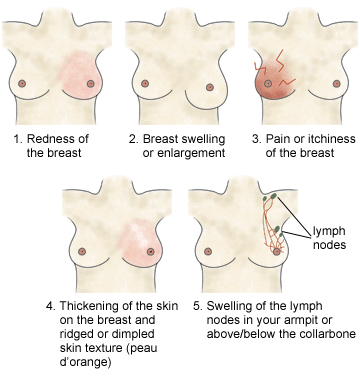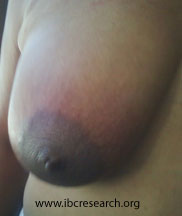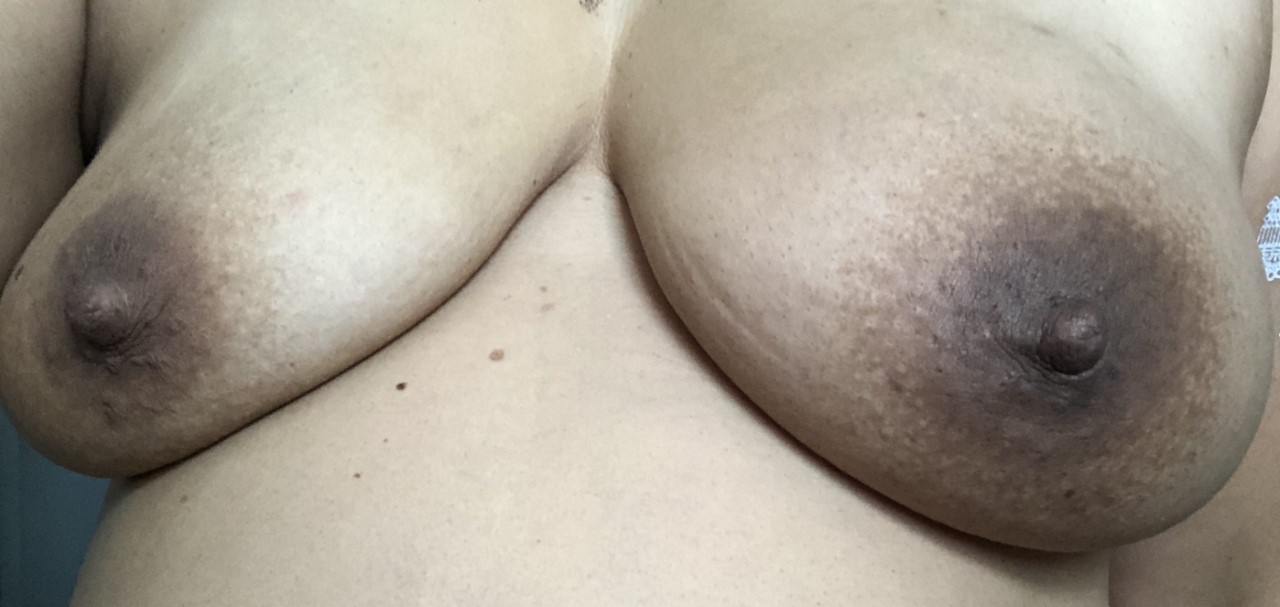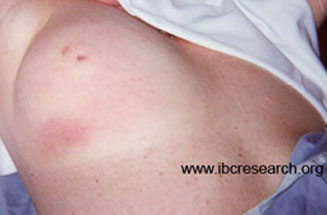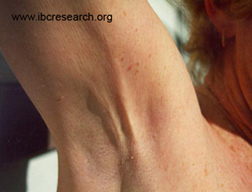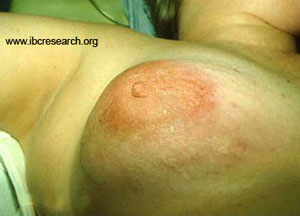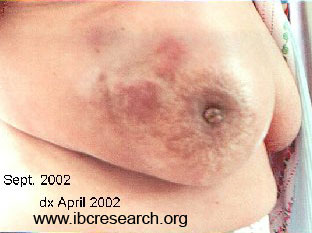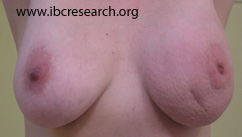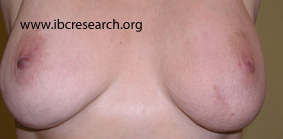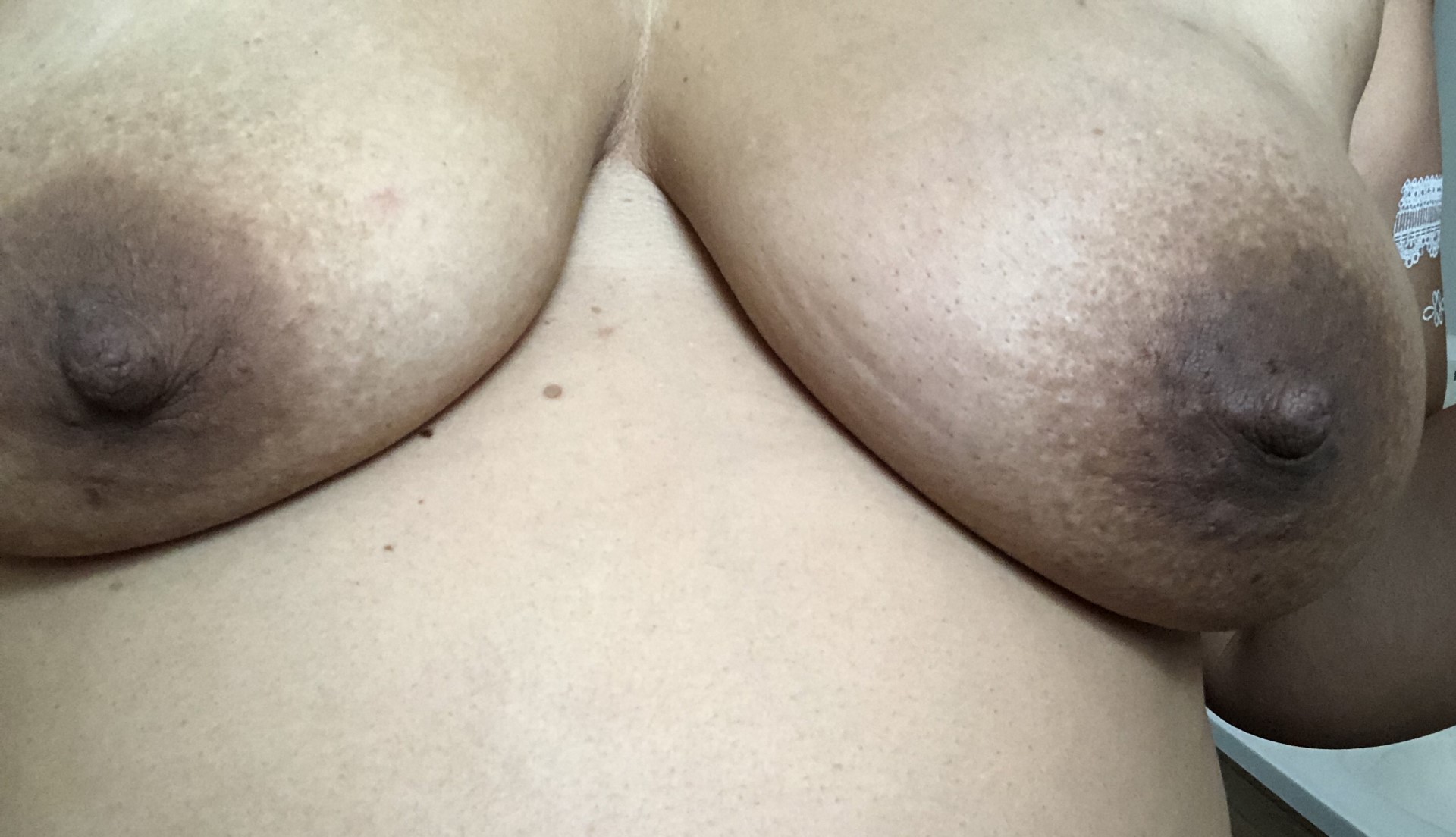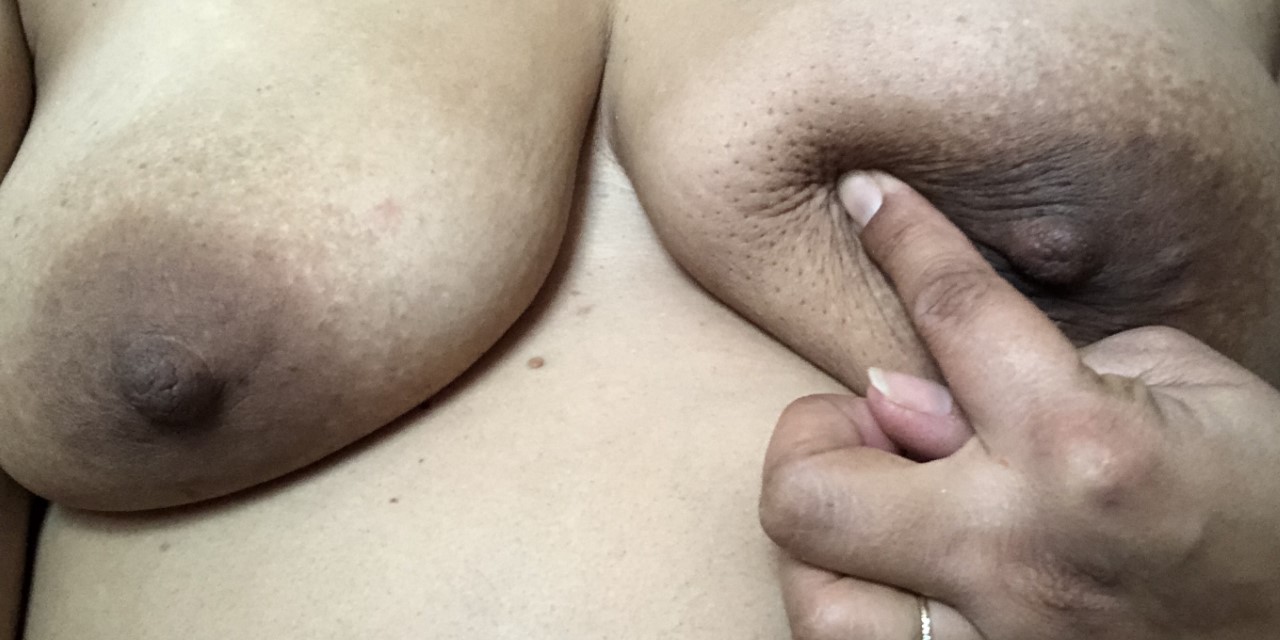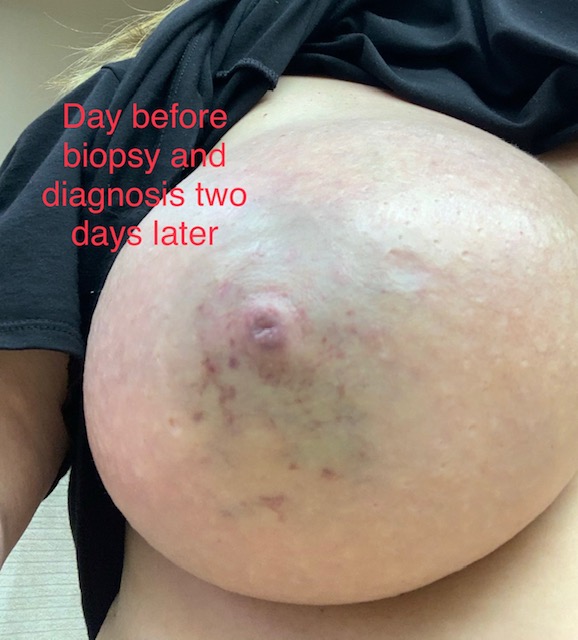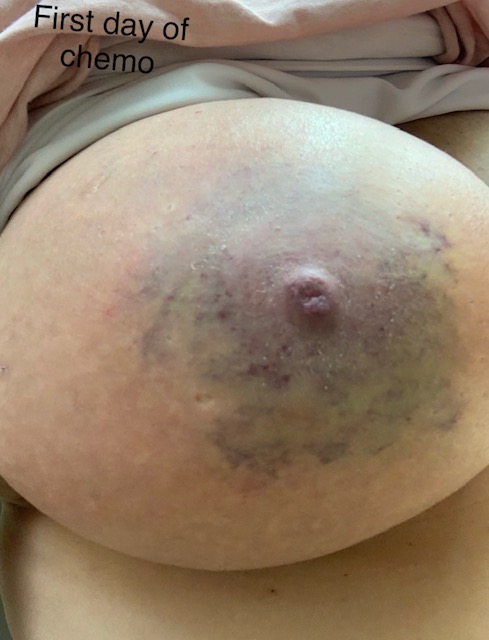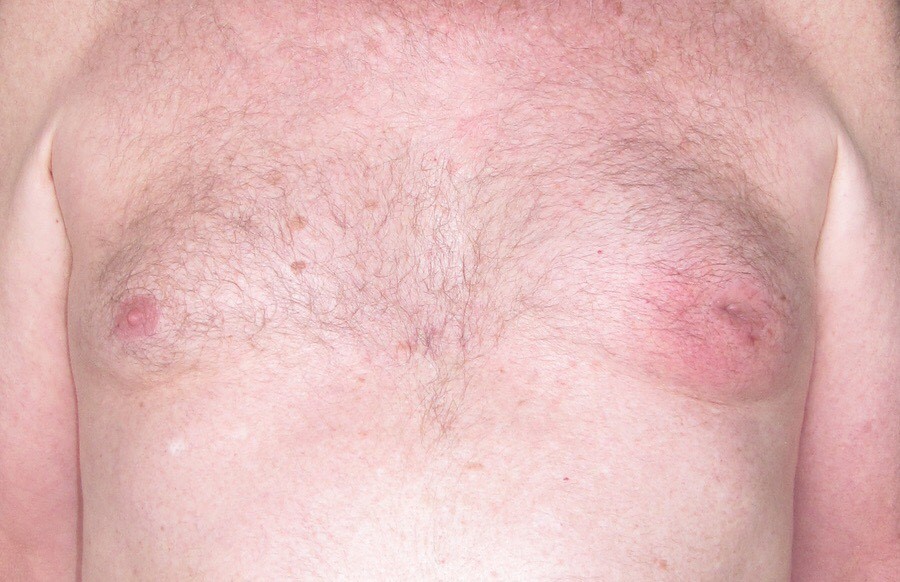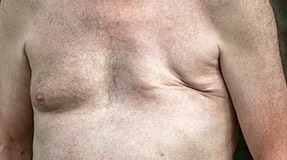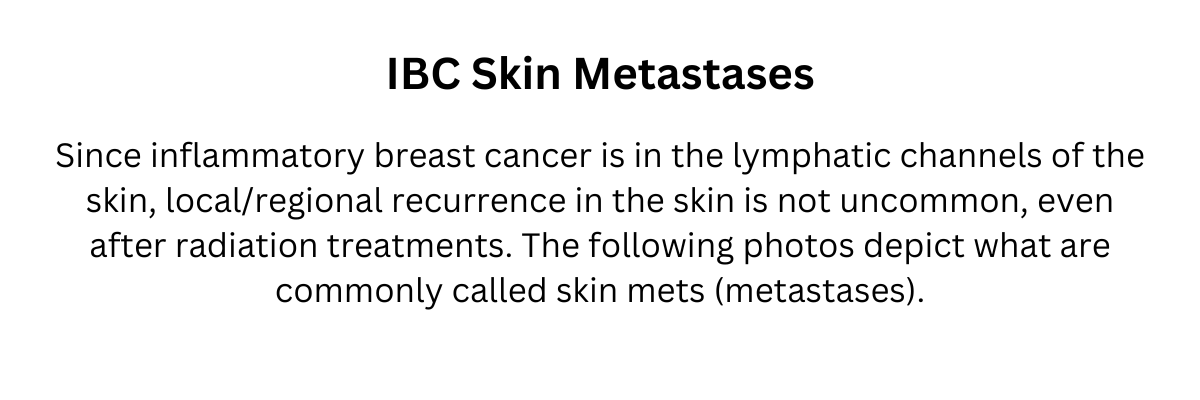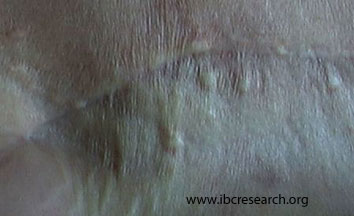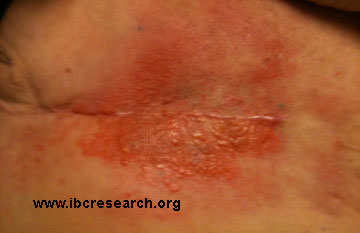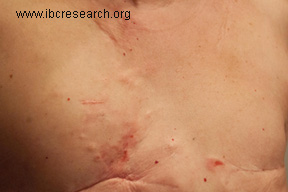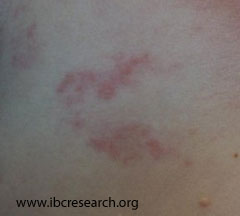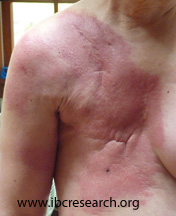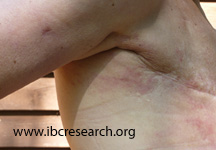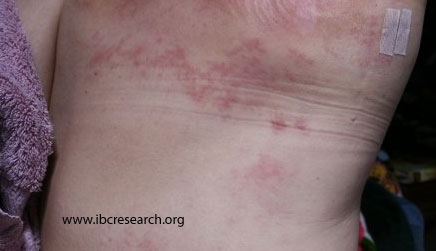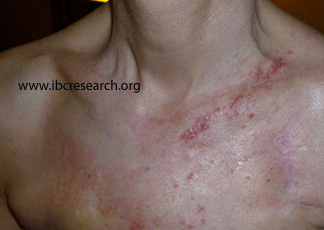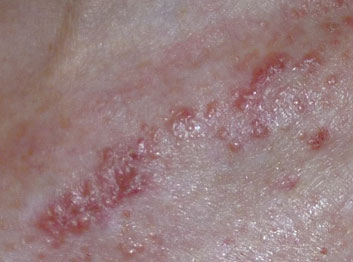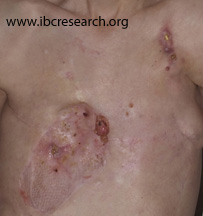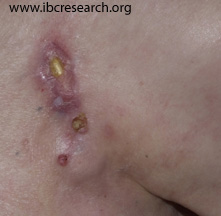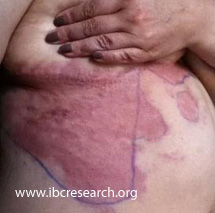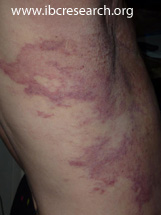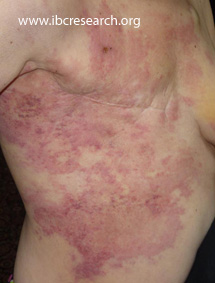Recognize the symptoms of inflammatory breast cancer
In this less-common form of breast cancer, symptoms come on quickly in one breast – often in a matter of weeks. The changes are caused by cancer cells blocking the flow of lymphatic fluid in the skin of the breast. Symptoms can vary from person to person, but most IBC patients experience a combination of the following.
Image used with permission from Dana Farber Cancer Institute.
Common symptoms
Redness or discoloration
Rapid increase in breast size
Skin dimpling like orange peel*
Pain or unusual tenderness
Intense or persistent itching, often deep in the breast
Swollen lymph nodes
*Called peau d’orange, French for orange peel
Other possible symptoms
Breast warmth
Nipple inversion or discharge
Breast lump
IBC is not a gender-specific disease!
Though rare, men can also develop inflammatory breast cancer. Check with your doctor if you notice lumps, redness, swelling or pain. Learn more.
What can IBC look like?
This gallery shows typical visual clinical symptoms, ranging from time of diagnosis through treatment and progression. Remember there are often non-visual symptoms that include itching, pain, and skin thickening. Thank you to the patients who have provided these images for use on this web site.
Photos may not be used without permission. Contact us to discuss use.
Inflammatory breast cancer symptoms can vary in appearance. It can be difficult to visualize changes in skin color and texture by descriptions alone. Redness/rash may be more difficult to identify in darker skin tones. Sincere appreciation to the patients who generously shared these photos to provide examples of inflammatory breast cancer.
What should you do if you have any of these symptoms?
Don’t panic! All symptoms of IBC can also indicate an infection or other problem. Some of these issues, like breast tenderness, can be related to your menstrual cycle. Only a medical professional can make the final diagnosis.
Do call your doctor right away. When a breast change lasts longer than a cycle or when it is acute, it’s time to call your doctor. While it can be tempting to brush off itching or swelling as a minor problem, you need to report all breast changes to the doctor. Because IBC progresses quickly, prompt diagnosis and treatment are essential for your best outcomes.
Be prepared to follow up quickly. Because IBC can look like a type of breast infection called mastitis, doctors often prescribe a round of antibiotics to rule out IBC. They may also suggest topical treatments if they think the problem is a fungal infection or other problem on the surface of the skin. If this treatment works, IBC is ruled out. However, if treatment does not work quickly, a biopsy will be needed to rule out IBC. The usual procedure is skin punch biopsies in several areas of the breast.
The information on this website is intended for general knowledge only and is not a substitute for medical advice or treatment. The content for this website has been reviewed by our medical advisory board who are experts in the field. View our full disclaimer.

